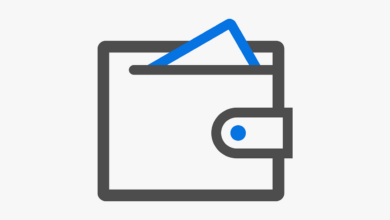Securing Smart Contracts – The Audit Advantage

In the intricate landscape of blockchain technology, the significance of smart contracts cannot be overstated. These digital agreements, powered by self-executing code, hold the potential to revolutionize industries by automating processes and reducing reliance on intermediaries. However, with this potential comes a multitude of risks that necessitate a robust framework for security assessments. This is where audits play a pivotal role, serving as a critical mechanism for enhancing the safety and protection of smart contracts.
The importance of auditing in the realm of smart contracts lies in its ability to identify vulnerabilities and ensure adherence to best practices before deployment. Through meticulous review and testing, auditors can uncover flaws that may otherwise lead to catastrophic failures or exploits once a contract is live on the blockchain. This process not only bolsters security but also instills confidence among users and stakeholders, fostering a more resilient ecosystem.
Moreover, as the complexity of smart contracts continues to evolve, so too does the necessity for thorough security assessments. Each line of code represents a potential point of failure, and the implications of such failures can be dire. By prioritizing auditing as an integral part of the development lifecycle, developers can significantly mitigate risks associated with their contracts. The proactive approach offered by audits enhances not just individual contract safety but contributes to the broader goal of establishing trust within the decentralized framework.
In summary, the role of audits in augmenting smart contract security is paramount. As we navigate this rapidly advancing technological terrain, understanding and implementing comprehensive auditing practices will be crucial for ensuring that these innovative tools are both effective and secure. In doing so, we not only protect individual interests but also fortify the very foundations upon which this new digital economy is built.
The Importance of Smart Contract Audits
In the rapidly evolving landscape of blockchain technology, the necessity for security in smart contracts cannot be overstated. These self-executing contracts, governed by code, possess the potential to revolutionize various industries by eliminating intermediaries and enhancing efficiency. However, this promise is fraught with risks. The significance of conducting audits to ensure the safety of these contracts is paramount, as vulnerabilities within the code can lead to devastating financial losses and reputational damage for entities involved.
Auditing serves as a critical mechanism for enhancing the protection of smart contracts. Through thorough assessments, auditors can identify weaknesses and flaws that may not be immediately apparent to developers. This proactive approach to security is essential in a realm where malicious actors continuously seek to exploit any oversight. For instance, the infamous DAO hack in 2016, which resulted in the loss of $50 million worth of Ether, underscores the catastrophic consequences that can arise from insufficient auditing practices. By undertaking rigorous audits, organizations can significantly mitigate such risks.
The importance of auditing extends beyond mere identification of vulnerabilities; it also involves providing actionable insights for improvement. A comprehensive audit report offers developers a roadmap for enhancing the security of their smart contracts. This iterative process fosters an environment where continuous improvement becomes integral to development practices. Security assessments not only bolster confidence among users but also encourage wider adoption of smart contract technologies across various sectors.
Moreover, the dynamic nature of blockchain ecosystems necessitates ongoing audits and assessments. As protocols and platforms evolve, so too do the threats they face. Regular audits ensure that smart contracts remain resilient against emerging vulnerabilities. For example, DeFi projects often undergo frequent security evaluations due to the high stakes involved in managing substantial assets. This ongoing commitment to security demonstrates a conscientious approach to safeguarding user funds and maintaining trust within the ecosystem.
In addition to protecting individual projects, audits play a pivotal role in fostering overall industry credibility. When smart contracts undergo rigorous assessments by reputable third-party firms, it enhances public perception and instills confidence among potential users and investors. The collective assurance gained through widespread auditing practices can drive greater adoption of decentralized applications (dApps), ultimately propelling innovation and growth within the blockchain space.
In conclusion, the significance of auditing in enhancing smart contract safety cannot be overlooked. Through meticulous assessments and ongoing evaluations, organizations can bolster their defenses against potential threats while simultaneously contributing to a more secure blockchain landscape. As the adoption of smart contracts continues to rise, prioritizing security through comprehensive audits will be fundamental in realizing their full potential while safeguarding participants’ interests in this transformative technology.
Common Vulnerabilities in Smart Contracts and the Importance of Auditing for Their Safety
The rise of blockchain technology has ushered in a new era of decentralized applications, with smart contracts at the forefront of this revolution. However, the very nature of these contracts, executed automatically based on predefined conditions, often exposes them to significant vulnerabilities. Common issues include reentrancy attacks, where malicious actors exploit the contract’s execution flow, and integer overflows, which can lead to unexpected behaviors when arithmetic operations exceed their limits. These vulnerabilities underscore the importance of rigorous assessments to safeguard the integrity of smart contracts and protect user assets.
To enhance smart contract protection through audits, a systematic approach is essential. Audits serve as a critical checkpoint in the development lifecycle, ensuring that potential vulnerabilities are identified and mitigated before deployment. The auditing process often involves both manual code reviews and automated testing tools that analyze the contract for known weaknesses. This multifaceted approach not only detects flaws but also educates developers on best practices for coding secure contracts, thereby fostering a culture of security within the development community.
Security assessments hold substantial significance in the realm of smart contracts. They provide insights into the contract’s logic and operational flow, identifying areas that may be susceptible to exploitation. Furthermore, these assessments offer valuable feedback that can enhance future designs and implementations. By understanding common pitfalls encountered in previous contracts, developers can adopt preemptive measures that bolster the security framework surrounding their projects.
The importance of auditing cannot be overstated when it comes to ensuring smart contract safety. Without comprehensive audits, even seemingly simple contracts could harbor hidden risks that result in catastrophic financial losses. For instance, the infamous DAO hack in 2016 highlighted how a lack of thorough auditing could lead to devastating consequences. Such events have instigated a growing recognition within the industry about the necessity for stringent auditing protocols before any smart contract is made operational.
In addition to protecting individual contracts, thorough auditing processes contribute to building overall trust in blockchain technology. As users become more aware of the potential risks associated with unverified contracts, they tend to gravitate towards platforms that prioritize security through established auditing practices. This shift reinforces a positive feedback loop where an emphasis on security leads to increased adoption and further investment in audit services.
Ultimately, enhancing smart contract protection through diligent audits serves as a foundational pillar for long-term sustainability in the blockchain ecosystem. By prioritizing security assessments and embracing robust auditing procedures, developers can mitigate risks and foster confidence among users. As we continue to explore the boundless possibilities offered by decentralized technologies, it is imperative that we remain vigilant about the safety of smart contracts–an endeavor that not only benefits individual stakeholders but fortifies the entire blockchain landscape against potential threats.
The Role of Audits in Enhancing Smart Contract Security
In the rapidly evolving landscape of blockchain technology, the significance of security assessments for smart contracts cannot be overstated. These digital agreements, while offering unparalleled efficiency and transparency, also harbor vulnerabilities that can lead to catastrophic losses if left unchecked. The importance of auditing emerges as a critical pillar in safeguarding these contracts, ensuring that the integrity of the underlying code is maintained through rigorous evaluations.
As we delve deeper into the intricacies of smart contract safety, it becomes evident that effective auditing serves not merely as a checkbox in the development process but as an essential practice that enhances protection against potential exploits. The assessments conducted through audits illuminate areas of weakness and provide developers with actionable insights, allowing for proactive measures that fortify the security framework surrounding their contracts.
Conclusion
In conclusion, the role of audits in enhancing smart contract security is profound and multifaceted. It is through comprehensive assessments that we can grasp the true significance of security in these contracts. Regular audits facilitate a deeper understanding of potential risks, thereby reinforcing the safety nets that protect users and investors alike.
- Importance of Regular Audits: Routine evaluations ensure that newly discovered vulnerabilities are addressed promptly.
- Enhancing Protection: Each audit contributes to a more robust security architecture, mitigating risks associated with exploitation.
- Comprehensive Assessments: A thorough review encompasses not just code but also logic and design, uncovering flaws that could lead to failure.
- Collaborative Approach: Engaging with experienced auditors fosters an environment where knowledge sharing leads to collective growth in security practices.
The path to achieving unparalleled safety in smart contracts is paved with the diligent application of auditing best practices. By embracing this discipline, we not only enhance the protection offered by these innovative digital agreements but also cultivate trust within the broader blockchain ecosystem. In a world increasingly reliant on technology, prioritizing audits is not just wise; it is imperative for anyone involved in the realm of smart contracts.





